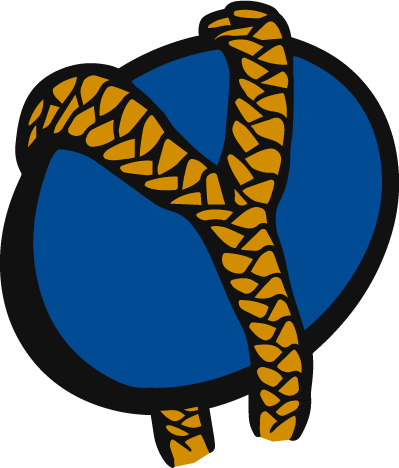If you need a quote for an electronic CRF and/or clinical data management services, contact us at info@zlynger.com
Academic clinical research plays a crucial role in the development of new therapies for cancer patients. These types of investigations are performed by academic research groups, university hospitals, and independent investigators without commercial purposes.
In the oncology space, academic research focuses on the design and execution of investigator initiated trials (IIT) and non-interventional clinical studies that seek to gain new insights into the safety and efficacy of new anticancer treatment approaches.
In all clinical studies, whether academic or commercial, the use of an effective electronic case report form (eCRF) is one of keys for success. An eCRF can be defined as a software application used to collect, clean, and analyze clinical data.
The publication of high-quality clinical trial results —and the submission of data to regulatory agencies— requires both highly qualified data managers and solid technological tools. Therefore, the selection of a good eCRF, and related data management services, becomes a critical decision.
Zlynger is a company specialized in eCRF and data management solutions for academic cancer research. Since 2012, we have helped academic trial sponsors to manage data in non-commercial oncology trials, with particular focus on less frequent tumors like sarcomas, gynecological cancers, and pediatric tumors, among others.
In the following lines you can learn how Zlynger’s eCRF and data management capabilities meet the specific needs of academic sponsors conducting clinical trials in oncology.
Extensive Experience in Academic Oncology Clinical Trials
Since its inception in 2012, Zlynger has specialized in providing eCRF-related services to academic sponsors conducting oncology trials.
We have abundant expertise in managing cancer patient data and implementing eCRF systems for academic research groups, university hospitals, and independent investigators.
Our eCRF software is being used in oncology clinical trials of all sizes, from small phase 1 studies up to large phase 3 international trials recruiting hundreds of cancer patients.
Our data management experience in academic oncology research also includes the implementation of national and international web-based tumor registries, comprising large numbers of cancer cases in the context of retrospective and prospective post-approval studies.
Comprehensive eCRF and Data Management Support for Academic Sponsors
Zlynger partners with academic institutions and investigators by providing them with all the technological tools and services needed to effectively collect, process, and assess data in a cancer clinical trial.
Our service portfolio not only includes eCRF specification, implementation, testing, validation, training, and technical support, but also data cleaning, export, and analysis.
eCRF Specification
This work includes the definition of the data forms and fields that will be used in the eCRF. More specifically, the eCRF requirements are written in an annotated CRF, which is a specification document detailing all the forms, questionnaires, and variables required in the study.
Some of the forms typically used in cancer studies include initial diagnosis, previous cancer therapies, previous tumor progressions or relapses, ECOG status at different time points, treatment information, adverse events, concomitant medications, tumor assessments, disease progression in the study, European Organisation for Research and Treatment of Cancer (EORTC) quality of life questionnaires, survival follow-up, and subsequent cancer therapies.
eCRF Implementation
Once the eCRF specification is ready, the eCRF system can be implemented (built). This consists of building the data forms and fields using the software tool. Building an eCRF requires a certain level of technical expertise, and this task is usually done by experienced data managers.
Implementing an eCRF is not just about setting up the forms and screens for data collection, but it also requires the configuration of workflows and data discrepancy detection mechanisms (automatic queries and hard edit checks).
eCRF Testing and Validation
The eCRF implementation step is followed by its testing and validation. At this point, the actual eCRF forms are tested through a user acceptance tests (UAT) process in which a tester verifies that the eCRF system meets the agreed specifications. This validation step is very important to certify that the eCRF software works well before it is used to enter patient data.
eCRF Training
Clinical site personnel —principal investigators, clinical research coordinators, and data entry staff— need to be trained before they can begin using the eCRF system. Zlynger’s data managers can provide remote training sessions via teleconference to the site’s clinical trial team members to ensure that they make correct use of the tool.
eCRF Technical Support
Once the site users have started the deployment of the eCRF system, Zlynger’s staff can provide support by answering user questions and resolving technical problems. This support is given throughout the study and guarantees effective operation of the tool, software updates, and maintenance of the data servers.
eCRF Data Cleaning
As users start entering clinical data in the eCRF, one of the key tasks to be performed is the review and cleaning of these data. Data entry errors occur and it is common to detect inconsistencies in the data entered in the eCRF system. This data verification process is known as ‘data cleaning’, and aims at ensuring high-quality consistent data for analysis.
Zlynger’s data managers have wide experience in reviewing cancer patient data, which guarantees effective data reviews to produce robust and error-free final datasets.
eCRF Data Export
The eCRF cleaned data can be exported into datasets, ready for analysis. Zlynger’s eCRF systems integrate data extraction capabilities to easily generate the required datasets in different formats (e.g. Excel, CSV files). These datasets can be shared with the statisticians, statistical programmers, and clinical investigators who will be in charge of producing the final results and publications.
eCRF Data Analysis
If needed, Zlynger can also provide statistical programmers (SAS experts) —with great expertise in oncology— to create the report containing the tables, figures, and listings (TFL). TFLs are the results of the study and this information is used to write the publications (abstracts, posters, and manuscripts), as well as the Clinical Study Report (CSR).
DICOM Imaging Platform for Central Radiology Reviews
Based on its vast oncology experience, Zlynger is able to provide specialized tools required in cancer trials. One example is the provision of a web-based imaging platform to upload, review, and download DICOM images typically used in central radiology reviews. These platforms allow clinical sites to upload CT scans and MRIs —used for disease assessment— in solid tumor trials. Then, the central expert radiologist can log into this platform to perform the reviews and measurements (e.g. using RECIST and/or Choi) criteria.
Cancer-Related Quality of Life, Pain, and Analgesic Use Questionnaires
Cancer clinical trials increasingly include the use of quality of life questionnaires, as well as other diaries utilized to document tumor-related pain and analgesic intake. Zlynger’s eCRF systems can be used to collect the data contained in these questionnaires, such as the QLQ-C30 of the EORTC, the Brief Pain Inventory – Short Form (BPI-SF), which is a 9 item self-administered form used to evaluate the severity of a patient’s pain and the impact of this pain on the patient’s daily functioning, and the Analgesic Quantification Algorithm (AQA) employed to collect analgesic use information.
Cost-Efficient Services to Meet Budget Constraints
Finally, but no less importantly, we are aware of the budget constraints that may be involved in academic research. Academic research groups, hospitals, universities, and independent investigators may have lower budgets available to conduct their clinical studies. Zlynger understands these potential limitations and, for this reason, we provide cost-efficient tools that can meet the financial capabilities of each academic sponsor. This includes low-cost eCRF solutions complying with the highest quality standards and regulatory requirements.
Conclusion
Zlynger is the ideal technological and clinical partner for academic sponsors conducting non-commercial clinical trials in oncology. As cancer experts, we can offer professional eCRF and data management services, including eCRF specification, implementation, testing, training, and technical support. We can also help with data cleaning, export, and analysis, as well as the provision of DICOM imaging platforms for central radiological reviews. As we perfectly understand the particular needs of academic cancer research, we can definitely provide cost-efficient tools and services to meet budget constraints.
If you need a quote for an electronic CRF and/or clinical data management services, contact us at info@zlynger.com



